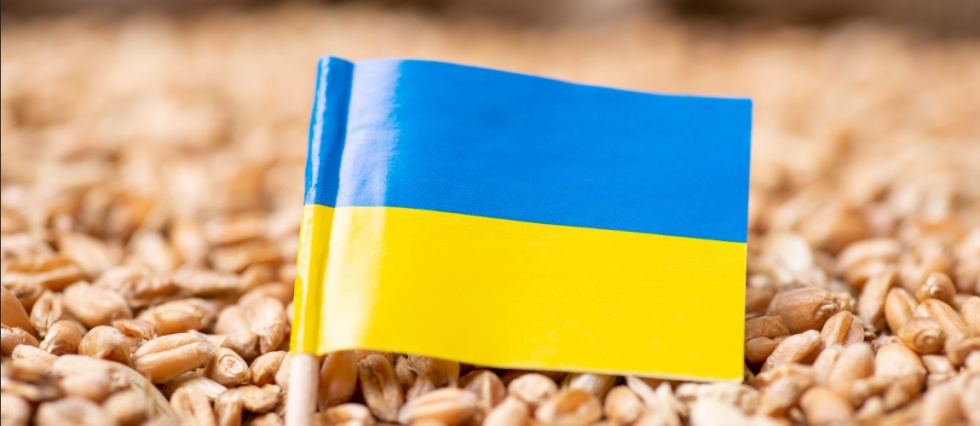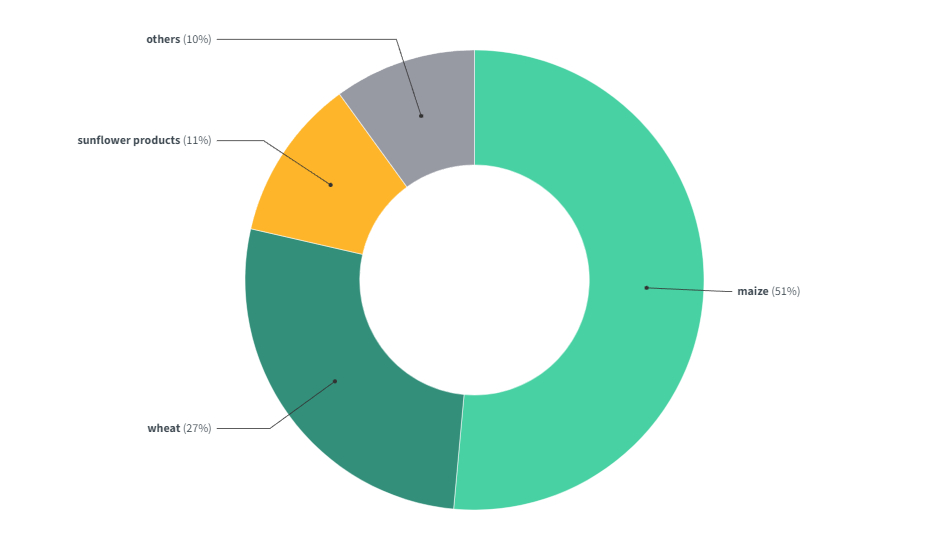Ukrainian Grain Exports in Numbers
Since the beginning of the Russian invasion of Ukraine in February 2022, Ukrainian exports of grain have been severely disrupted.

For over four months, Russian military vessels blocked Ukrainian ports in the Black Sea.
On 22 July 2022, an agreement was brokered by the United Nations and Türkiye to open a safe maritime humanitarian corridor in the Black Sea (the Black Sea Grain Initiative). Over 1 000 ships full of grain and other foodstuffs left Ukraine from three Ukrainian ports (Chornomorsk, Odesa and Yuzhny/Pivdennyi) during the implementation of the initiative.
In July 2023, Russia announced its decision to terminate the Black Sea Grain Initiative.
What has been exported so far?
As of July 2023, almost 33 million tonnes of grain and other foodstuffs had been exported via the Black Sea Grain Initiative.
Over 50% of the cargo was maize, the grain most affected by blockages in Ukrainian granaries at the beginning of the war. It had to be moved quickly to make space for wheat from the summer harvest.
What was exported through the Black Sea Grain Initiative?

Where was Ukrainian grain been shipped to?
65% of the wheat exported through the Black Sea Grain Initiative reached developing countries. Maize was exported almost equally to developed and developing countries.
Share of grain export by country wealth
The United Nations World Food Programme (WFP – the largest humanitarian organisation in the world) also shipped wheat from Black Sea ports. As of July 2023, the programme had bought 80% of its grain stock from Ukraine, up from 50% before the war. Over 725 000 tonnes of wheat left Ukrainian ports to Ethiopia, Yemen, Afghanistan, Sudan, Somalia, Kenya and Djibouti during the implementation of the initiative.
Share of export by commodity and destination
The EU is a major global producer and exporter of wheat. It is estimated that the EU exported 31 million tonnes of wheat in the marketing year 2022/23. Destination countries include Algeria, Morocco, Egypt, Pakistan and Nigeria.
How have food prices changed because of the war?
Russia’s invasion of Ukraine has caused a significant increase in food prices on global markets. Grain prices have risen particularly sharply.
Both solidarity lanes (routes created by the EU to help Ukraine export its agricultural products, among other products) and the Black Sea Grain Initiative have notably contributed to lowering prices.
Keeping Ukrainian grain flowing remains crucial for global food security. Follow Export Portal for more updates.






Comments 0